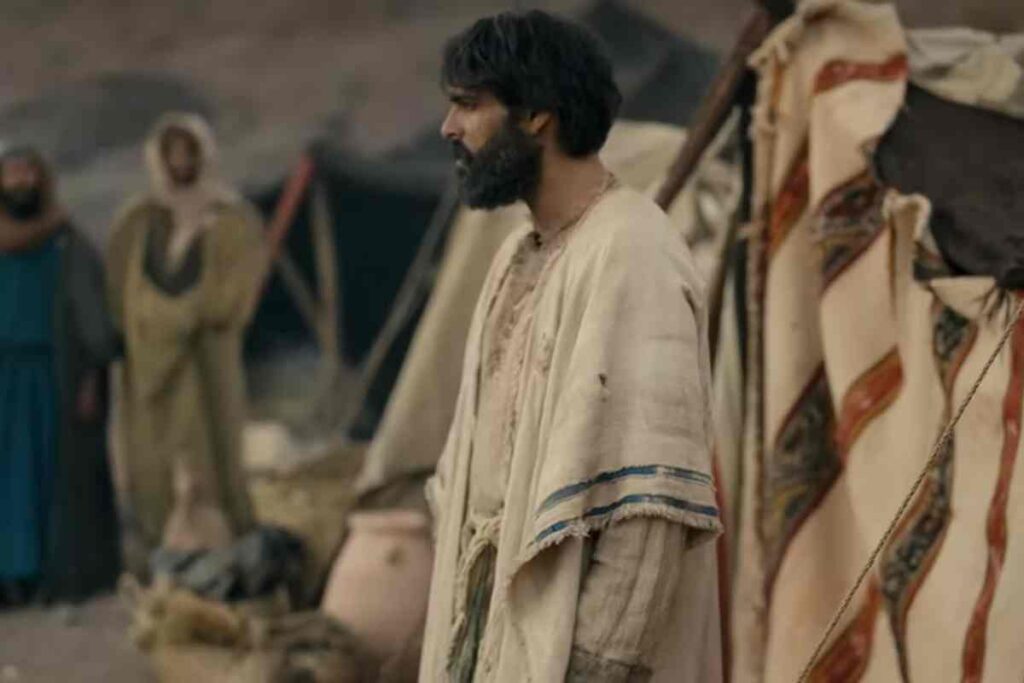In the ever-expanding realm of cinematic storytelling, Netflix continues to captivate audiences with its original content, and one recent addition to its catalog has sparked intrigue and contemplation: “The Testament: The Story of Moses.” This ambitious series retells the iconic biblical narrative of Moses, drawing from the rich tapestry of scripture to craft a compelling and visually stunning portrayal. As viewers delve into this epic saga, they encounter a plethora of themes, characters, and moments that resonate with the timeless wisdom found in the Bible.
One notable aspect of “The Testament: The Story of Moses” is its faithful incorporation of various Bible verses, seamlessly interwoven into the dialogue and narrative. These passages serve not only to enrich the storytelling but also to underscore the profound spiritual and moral dimensions of Moses’ journey.
Among the many verses quoted in the series, one of the most poignant is Exodus 3:14, where God reveals His divine name to Moses: “God said to Moses, ‘I AM WHO I AM.’ And he said, ‘Say this to the people of Israel: I AM has sent me to you.'” This verse encapsulates the essence of God’s eternal nature and sovereignty, a central tenet that reverberates throughout the entire narrative of Moses’ calling and mission. Another pivotal moment in the series echoes Exodus 20:2-17, commonly known as the Ten Commandments. As Moses grapples with his role as the leader of the Israelites, these commandments serve as a moral compass, guiding him and his people through the challenges they face in the wilderness. The commandments not only provide a framework for ethical living but also reinforce the covenantal relationship between God and His chosen people.
Among the many verses quoted in the series, one of the most poignant is Exodus 3:14, where God reveals His divine name to Moses: “God said to Moses, ‘I AM WHO I AM.’ And he said, ‘Say this to the people of Israel: I AM has sent me to you.'” This verse encapsulates the essence of God’s eternal nature and sovereignty, a central tenet that reverberates throughout the entire narrative of Moses’ calling and mission. Another pivotal moment in the series echoes Exodus 20:2-17, commonly known as the Ten Commandments. As Moses grapples with his role as the leader of the Israelites, these commandments serve as a moral compass, guiding him and his people through the challenges they face in the wilderness. The commandments not only provide a framework for ethical living but also reinforce the covenantal relationship between God and His chosen people.

Furthermore, “Testament: The Story of Moses” draws upon the Psalms for moments of reflection and solace amidst adversity. Psalm 23, with its comforting imagery of God as a shepherd, is particularly poignant in scenes where Moses seeks guidance and reassurance in the midst of uncertainty and doubt.
In addition to these direct references, the series also explores thematic parallels with other biblical narratives, such as the exodus motif found throughout scripture. The journey of the Israelites from bondage to liberation serves as a powerful allegory for the human experience of struggle and redemption, resonating with audiences on a profound spiritual level.
By incorporating these biblical verses and themes into its narrative tapestry, “Testament: The Story of Moses” invites viewers to embark on a journey of discovery and contemplation. Through the lens of cinematic storytelling, the series breathes new life into ancient texts, illuminating their enduring relevance and resonance in the modern world.
As audiences immerse themselves in the world of Moses and the Israelites, they are not merely passive spectators but active participants in a timeless story of faith, courage, and redemption. In doing so, “Testament: The Story of Moses” reaffirms the power of storytelling to inspire, provoke thought, and foster a deeper understanding of the human condition and our relationship with the divine.







